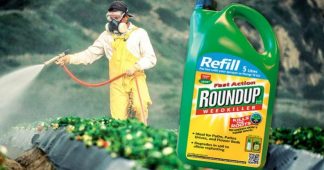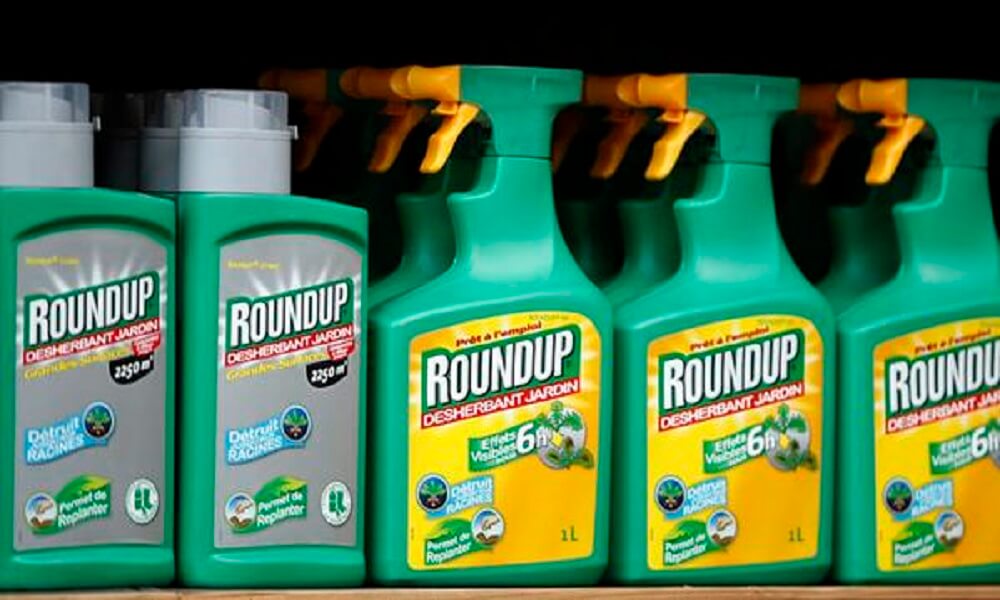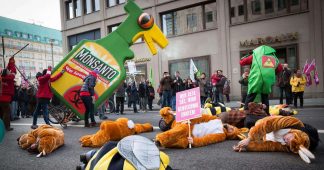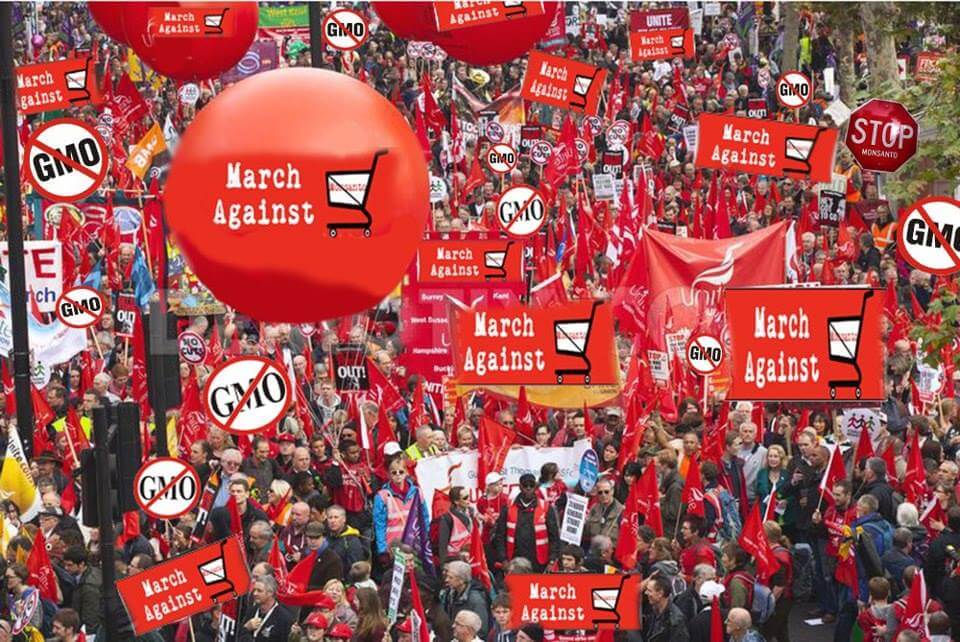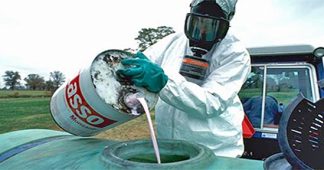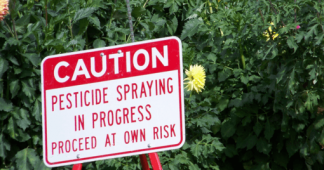2018 Roundup Lawsuit News: In August 2018, a jury for the Superior Court of California ordered Monsanto to pay $289 million to Dewayne Johnson, a former school district groundskeeper, because of Roundup’s likely role in contributing to his cancer. If you or a loved one has developed cancer as a result of exposure to Roundup, talk to a lawyer about your legal rights.
Popular weed killer Roundup, developed by Monsanto (which was recently acquired by Bayer), has been on the market since the 1970s and is widely used by farmers and homeowners alike in over 160 countries. Over the past several years, however, thousands of people have filed lawsuits claiming that the product’s active ingredient glyphosate can cause several types of cancer, including non-Hodgkin’s lymphoma.
Why are Roundup Lawsuits Being Filed?
Monsanto developed the herbicide glyphosate in 1970 to kill the weeds and grasses that compete with and harm crops. Monsanto marketed the chemical as Roundup Weed Killer, and by 2007 it became the most used herbicide in United States agriculture. An estimated 1.4 billion pounds of Roundup are used in over 160 countries each year.
Roundup has increased in popularity since Monsanto introduced genetically modified seeds resistant to glyphosate, allowing farmers to spray the product everywhere without worrying about killing crops. Roundup Ready crops, as they are called, include plants like corn, soybean, and cotton, and they account for over 270 million pounds of crops each year.
Despite its fast-growing popularity, Roundup has been called into question within the past several years. Thousands of Roundup users have filed lawsuits alleging that they have developed non-Hodgkin’s lymphoma, b-cell lymphoma, leukemia, or other forms of cancer after using the product.
Featured Roundup Lawsuit: Dewayne Johnson
Dewayne Johnson is a former groundskeeper for a California county school system who was diagnosed with non-Hodgkin’s lymphoma after years of using Roundup weed-killer and other pesticides containing glyphosate. According to Johnson, he used the product as many as 30 times per year, and on at least two occasions spilled a substantial amount of the chemical on his body.
In January 2016, Johnson filed a Roundup lawsuit against Monsanto, claiming that his use of Roundup contributed significantly to the development of his cancer. Because he was diagnosed with terminal cancer, California state law allowed Johnson to seek a fast-track lawsuit – though, the case still took nearly two and a half years to reach a jury trial. He built his case around the classification of glyphosate as “probably carcinogenic to humans” by the International Agency for Research on Cancer, and the fact that not enough testing has been done on Roundup’s formulation, which includes other chemicals in addition to glyphosate.
On August 10, 2018, the San Francisco jury returned with a verdict that awarded Mr. Johnson $289 million ($39 million in compensatory damages and $250 million in punitive damages). Monsanto continues to claim that their product is safe, and the company will likely appeal in the hope of getting the verdict tossed out or severely reduced. However, this first verdict in a Roundup lawsuit trial shows that the international agricultural corporation may be headed for a stiff battle.
Read more about the first Roundup verdict ≫
Does Roundup Cause Cancer?
There has been a lot of debate around the dangers of Roundup, specifically the herbicide glyphosate. Conflicting scientific studies have been released around its safety, with Monsanto representatives arguing that most studies have not found a cancer risk from glyphosate exposure.
Many, however, look to a 2015 assessment of glyphosate released by the International Agency for Research on Cancer (IARC), which falls under the World Health Organization (WHO). The agency’s evaluation explored the safety of five pesticides on the market, specifically working to determine if the agents could be considered carcinogenic. Through their investigation, the IARC labeled glyphosate as “probably carcinogenic to humans,” or Group 2A. This category is determined for agents in which evidence available of carcinogenicity in humans is a bit limited at the time, but a positive link between the agent and cancer still exists.
Representatives of the IARC have adamantly stood by this evaluation, even speaking out as recently as February 2018 to defend their findings again. The agency said the monograph is a crucial first step for further research into glyphosate and other pesticides to better determine carcinogenicity and what levels of exposure specifically can be linked to these various types of cancer.
In their own research, the U.S. Environmental Protection Agency (EPA) originally stated back in 1995 that glyphosate should be labeled as a probable human carcinogen. But in more recent years, the agency has changed its mind and argued that glyphosate isn’t carcinogenic and actually has low toxicity for humans as long as it is used according to the label directions.
In their most recent drafted assessment released in December 2017, the EPA went further to say that the pesticide also shows virtually no toxicity to animals, including birds, that encounter glyphosate in the natural environment. The pesticide won’t have their final review decision in place until 2019, while they conduct their own further research and evaluate other studies as well.
Despite the discrepancies between these two agencies, there have been many other medical studies observing the impact of glyphosate on farmers and other populations. These observed health risks have led to several countries, including Sri Lanka and Mexico, to outright ban its use or impose new stricter regulations on its use.
Potential Monsanto Coverup
More than 4,000 cancer patients and their families have filed lawsuits against Monsanto, claiming the company was aware of the dangers of glyphosate all along and didn’t properly warn consumers. Despite the many studies and IARC’s findings, Monsanto adamantly refutes claims that glyphosate and Roundup are harmful to health. But in recent lawsuits, lawyers discovered that Monsanto’s claims of safety may not be the full story.
In a recent Monsanto lawsuit, unsealed documents and emails emerged suggesting Monsanto had in fact ghostwritten several scientific papers to help ensure that glyphosate was found to be safe to use in the EPA’s evaluation of the widely used herbicide. Roundup cancer lawyers found that company executives were working with a former EPA employee to refute claims that glyphosate was dangerous and try to squash an investigation into the agent.
Monsanto was allegedly made aware of the potential evaluation of the herbicide months ahead of time, enabling them to prepare for a full public relations attack against studies supporting a cancer link. Documents show Monsanto had two scientific papers ghostwritten and attributed to academics to disprove claims that glyphosate causes cancer. These documents were then used by the EPA to make a determination that glyphosate is not a carcinogen.
How Do I Qualify for a Roundup Lawsuit?
Anyone who has used Monsanto’s Roundup and later been diagnosed with non-Hodgkin lymphoma or another form of cancer may be eligible to file a lawsuit. Surviving family members may also be eligible to file a wrongful death lawsuit against Monsanto, should their loved one have passed away as a result of their cancer. Talk to a lawyer about your legal rights and learn more about your eligibility.
Types of Roundup Lawsuits: Class Action and Multidistrict Litigation (MDL)
Hundreds of Roundup cancer lawsuits have been filed across the United States in the past few years. A Roundup class action lawsuit (Case No: BC-578-942) was filed in Los Angeles Superior Court against Monsanto’s false advertising that the products were safe to use. The lawsuit claims the company deliberately falsified documents and concealed information that glyphosate is dangerous to humans and environmental health.
Due to the growing number of lawsuits against these products, nationwide litigation has also been consolidated under MDL No. 2741 under U.S. District Judge Vince Chhabria in the Northern District of California. There are over 380 lawsuits pending under the MDL, with the first trial in the Roundup litigation set for June 2018 in the Superior Court of the County of San Francisco. Roundup attorneys estimate there are well over 3,500 plaintiffs so far seeking legal action against the agricultural company, many of whom are agricultural workers.
Currently, the court is listening to expert testimony and arguments for and against Monsanto’s products in preparation for the first trial this summer.
Read more at https://www.consumersafety.org/legal/roundup-lawsuit/
